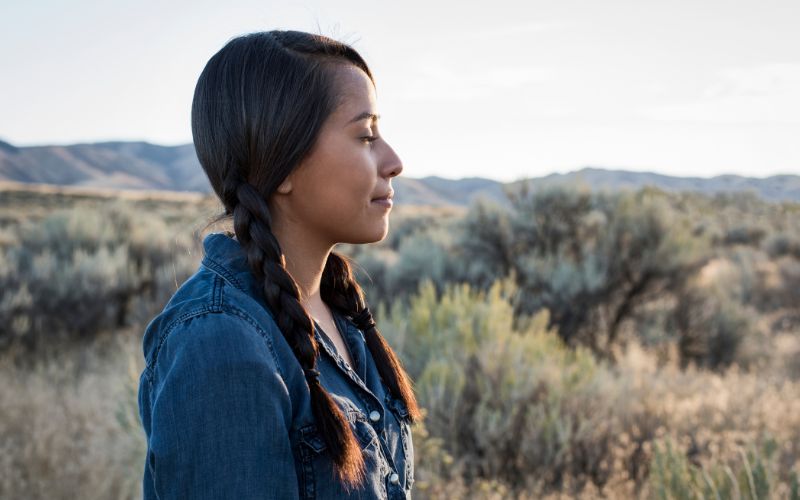
- Details
- By Kaili Berg
January is National Stalking Awareness Month, bringing attention to the impact of violence on American Indian and Alaska Native women, which remains a serious health problem.
Nearly one in two (or approximately 48.8 percent) of American Indian and Alaska Native women experienced stalking in their lifetime, according to the National Intimate Partner and Sexual Violence Survey (NISVS).
Stalking is a form of power and control and is a threat to public health problems experienced by both men and women. Stalking involves a perpetrator’s use of a pattern of harassing or threatening tactics that are both unwanted and cause fear or safety concerns in a victim, according to the Centers for Disease Control and Prevention.
Every victimization is unique, but some stalking victims have reported feelings of fear, being threatened, and concern for the overall safety of themselves, family, pets, or friends, and feeling vulnerable, confused and frustrated by the perpetrator.
The CDC states that stalking tactics include:
- unwanted following or watching of the victim
- unwanted approaching or showing up in places, such as the victim’s home, place of employment, or school
- unwanted text messages, calls, or posts to social media
- unwanted use of technology to track or monitor the victim
- leaving strange or potentially threatening items for the victim to find
- unwanted cards, letters, flowers, gifts damaging personal property harassment, which includes harassing the victim, their family, or friends, and
- hacking into online accounts and changing settings, passwords, or personal information, etc.
These experiences and effects of stalking can disrupt lives and contribute to adverse health conditions, according to the NISVS. Approaches on intimate partner violence and peer victimization and on promoting healthy relationships among youth may be most helpful in preventing stalking and its negative impacts.
If you are a stalking victim in need of help, contact your local domestic violence, rape crisis, Family Justice Center, or crime victim service providers. You can also visit the Strong Hearts Native Helpline or the Stalking, Prevention, Awareness, & Resource Center (SPARC).
More Stories Like This
Chumash Tribe’s Project Pink Raises $10,083 for Goleta Valley Cottage Hospital Breast Imaging CenterMy Favorite Stories of 2025
The blueprint for Indigenous Food Sovereignty is Served at Owamni
Seven Deaths in Indian Country Jails as Inmate Population Rises and Staffing Drops
Sen. Luján Convenes Experts to Develop Roadmap for Native Maternal Health Solutions


